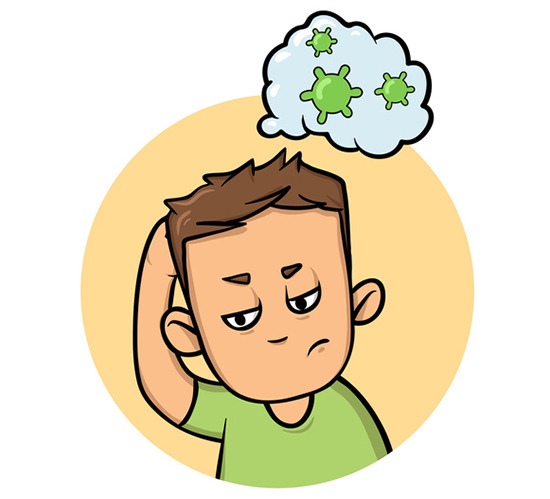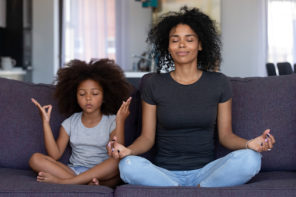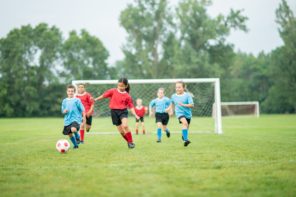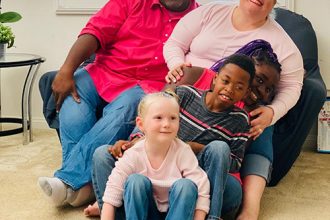COVID-19 has resulted in uncertain times for parents and children, prompting stress about family members health and safety, as well as upending school and work routines. The good news is that help is available to help manage anxiety: Psychological research has shown that there are specific, effective ways to prevent children’s anxiety and help them cope.
Here are six tips from our psychologists to help your kids during this crisis:
Remain calm and reassuring
The most crucial first step is to stay calm and check your anxiety levels. Children tend to model behaviors of their parents and caregivers or take on their surrounding stressors. Be aware of your behaviors and think about how your reactions may influence your child. Also, make time to talk to your kids whenever they have questions.
Be open and honest
Even though you may fear
that talking to your child about the pandemic will increase their worries,
bringing difficult topics into conversation can actually help to quiet
stressors, as children can imagine scenarios far worse than reality. Sharing
factual and age-appropriate information will help them put the situation into
perspective.
As you monitor the news and stay updated with information from credible media
outlets and local health authorities, tell your kids what they need to know. If
a child’s school or favorite park has closed, explain the safety issues behind
the closure. While there is no need to share statistics of people infected or
the health repercussions, it is important to emphasize self-care.
Keep a routine
Research suggests that children benefit from schedules and productive activities, so plan activities that will create structure and fun memories. If your child has art class at school, encourage them to draw or paint during their time home. Set aside specific times for reading and doing homework or visiting virtual museums or zoos. Research has also found that spending time in nature has multiple positive effects on children’s physical and mental health. So it would be good for the whole family to spend time outside by taking a walk or riding bikes in the neighborhood.
Manage screen time
In this unprecedented time, extra screen time during the next few weeks won’t hurt children. Flexibility is important, so don’t feel guilty about relaxing the rules. However, this doesn’t mean unlimited screen time. Caregivers should strive for a balance between digital and non-digital activities. For example, if a child spends time on a digital learning activity in the morning, they should take a break for a creative endeavor—like painting or baking cookies—or play a board game with the entire family. Parents should also monitor their own digital device use. Developing these habits now will continue to help children after this extended period at home and away from school.
Practice self-care and stay connected
With an increase in responsibilities and caretaking duties, you need to take care of yourself. Whenever possible, make time to read, exercise and meditate. One of the best ways to manage anxiety is to stay connected with friends and family, so call or video chat them. And check in on other parents and caregivers for open conversation, which gives you a safe space to express any distress or frustrations you may be feeling.
Behaviors during stress
When children and teens are stressed, their behaviors may change. Don’t be surprised if your children exhibit mood swings and problems with attention and concentration. This is the time to give your child extra patience and support. You may notice behaviors in children that may be cause for concern, such as your child making physical complaints. They may say they don’t feel well or have a headache, which may be their way of expressing their worry or concern. If you or your child feels overwhelmed, it may be time to talk to a licensed mental health professional.
More help to manage anxiety
For additional information on how to manage anxiety and resources on COVID-19, visit APA’s website.
This resource is made possible through a partnership between the American Psychological Association and National PTA to educate parents and teachers about behavioral health and emotional well-being.





